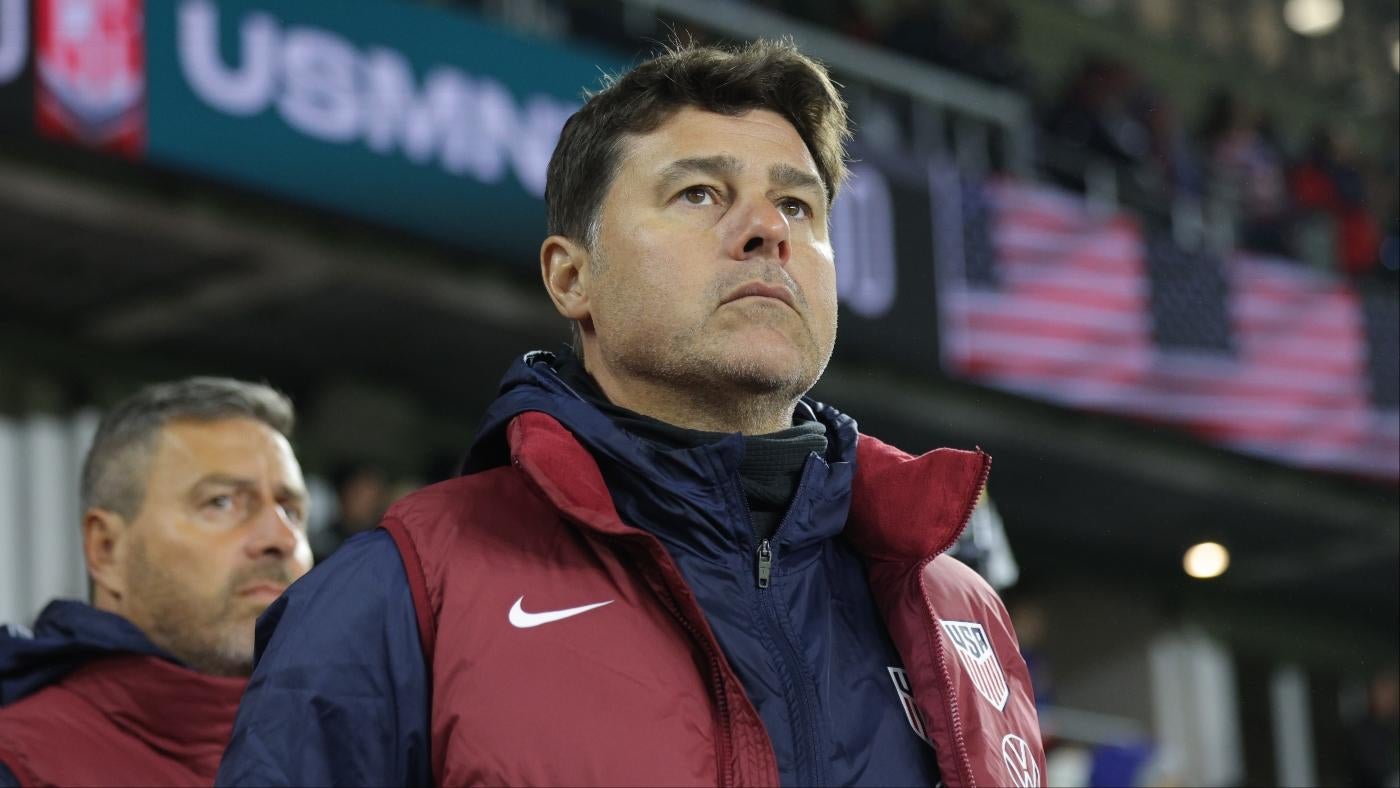
Inglewood, California – Six weeks before the last four teams standing in the Concacaf Nations League met in the Los Angeles area, the new geopolitical realities of the United States positioned themselves as a massive cloud that would persist on the North American Soccer Championship. The list of events that pointed out so much grew rapidly, from Concacaf’s question by comedian Jon Stewart during an episode of early February of “The Daily Show” to The Calefed 4 Nations Challenge among the United States and Canada hockey teams weeks later. Jesse Marsch, the American coach of the Canadian male soccer team, said the issue would enter the domain of his sport with a severe reprimand of the president of the United States, Donald Trump, in the state rhetoric “in the middle of a tariff war, a few days after the Canada hockey team annulled a great victory over its neighbors to the south.
By the time each one of the chief coaches of the United States, Canada, Mexico and Panama went to the Sofi stadium on Tuesday for comments before the game before Thursday’s semifinals, each of them said that football is everything they have talked about with their players, and everything they want to focus this week.
To some extent, the question was perhaps the most pressing for the chief coach of Panama, Thomas Christiansen, whose side is guaranteed to face the national male team of the United States on Thursday in the first semifinal. This confrontation occurs in the midst of tensions between the two nations on the Panama Canal, which Trump said that the United States “recovered” in his speech to a joint session of the Congress earlier this month, something that the president of Panama, José Raúl Mulino, called a lie. Christiansen, who is from Denmark, moved away from any comment on that front on Tuesday.
“It is not a motivation plan. Speaking or talking about politics, it is not my area,” said Christiansen. “I prefer to leave it behind … It is not my business. If you want to talk about football or tactical systems, I’m glad to talk about it, but politics is not my thing.”
While Christiansen kept his short comments, his counterparts could not do so, succumbing to the inherent discomfort of heading to the elephant in the room. Although Marsch kept his comments a month ago, he chose not to be a firemark on Tuesday and, on the other hand, he adopted an unexpectedly optimistic approach.
“I am hope that this tournament can be the best reflection of our societies, and that we do not have to waste time booing national hymns and getting caught in politics,” said Marsch, “and we can focus on players and teams and support the love of the game, the love of sport and whatever your nationality, that you, that you are, that you, that you, that you, that you, that you, that you [are able to] He supports his team until the end. “
Mauricio Pochettino, the Argentine chief coach of the USMNT, echoed the great behavior of Marsch both in his public comments and in a private interaction that the couple previously shared.
“I found, in the countryside, Jesse Marsch, and we were speaking in a very good way,” he said. “We are very friendly because we know [each other] from Europe “.
Marsch and Pochettino agreed that the current state of things in North America should not influence their pre -match preparations and that players and staff reserve the right to maintain their opinions for themselves. Marsch admitted that his players are “very aware”, but that he does not blame them for not wanting to be “political figures”, while Pochettino said he has a certain set of values, but said he is not qualified to deepen the geopolitical nuances, giving an answer that lasted more than three minutes despite taking a similar position to the concise of Christians.
However, he took a more pointed position on the subject than his counterparts, arguing that “people are not waiting for us to speak in this way.” The USMNT coach was particularly severe about not mixing the preparation and policy prior to the party, referring to how the 1982 Falklands War between the United Kingdom and Argentina has not affected their ability to work and reside in London.
“I think we can’t mix political things with sport,” said Pochettino. “I think that motivation cannot be of different political problems, diplomatic problems, in which we cannot participate. Players cannot participate there, they cannot think there … you know very well that I came from Argentina and everything that happened between Argentina and in the country now that it is my home, which is the United Kingdom to mix all these situations was never my way. Fun, to enjoy. “
Marsch, like its counterparts, has focused on other nationalist exercises that feel little controversial in international sports. He admitted that he wants his team to adopt the “Canadian hockey mentality” and sent a text message with Jon Cooper, the head of the Canada hockey team, during the 4 nations challenge. However, if the last four teams of the Concacaf Nations League want to talk about it, it is difficult to ignore the circumstances.
“The sports climate in North America has been elevated for national teams,” said Marsch. “We know that there is an atmosphere loaded around what these international games mean now.”

